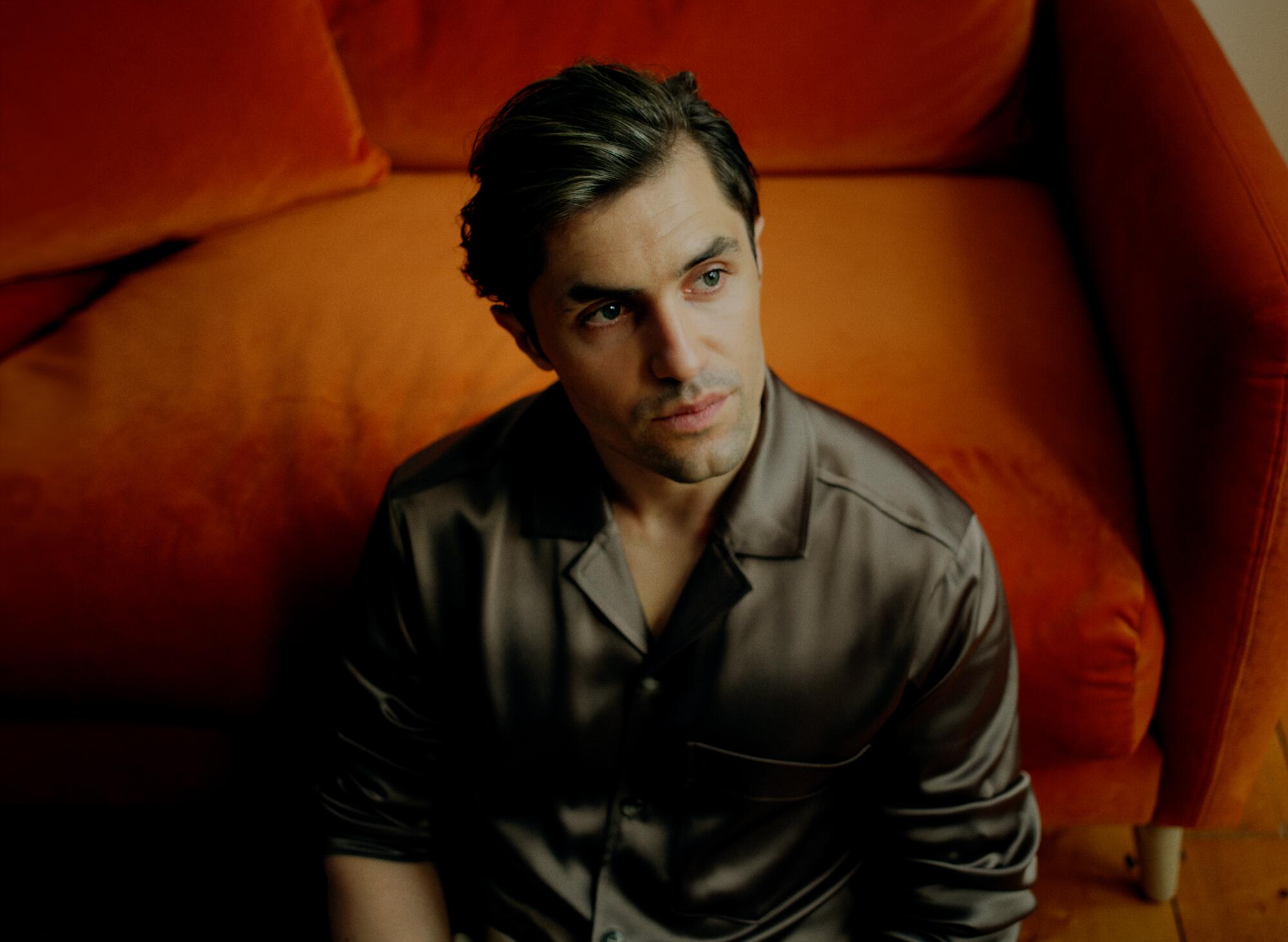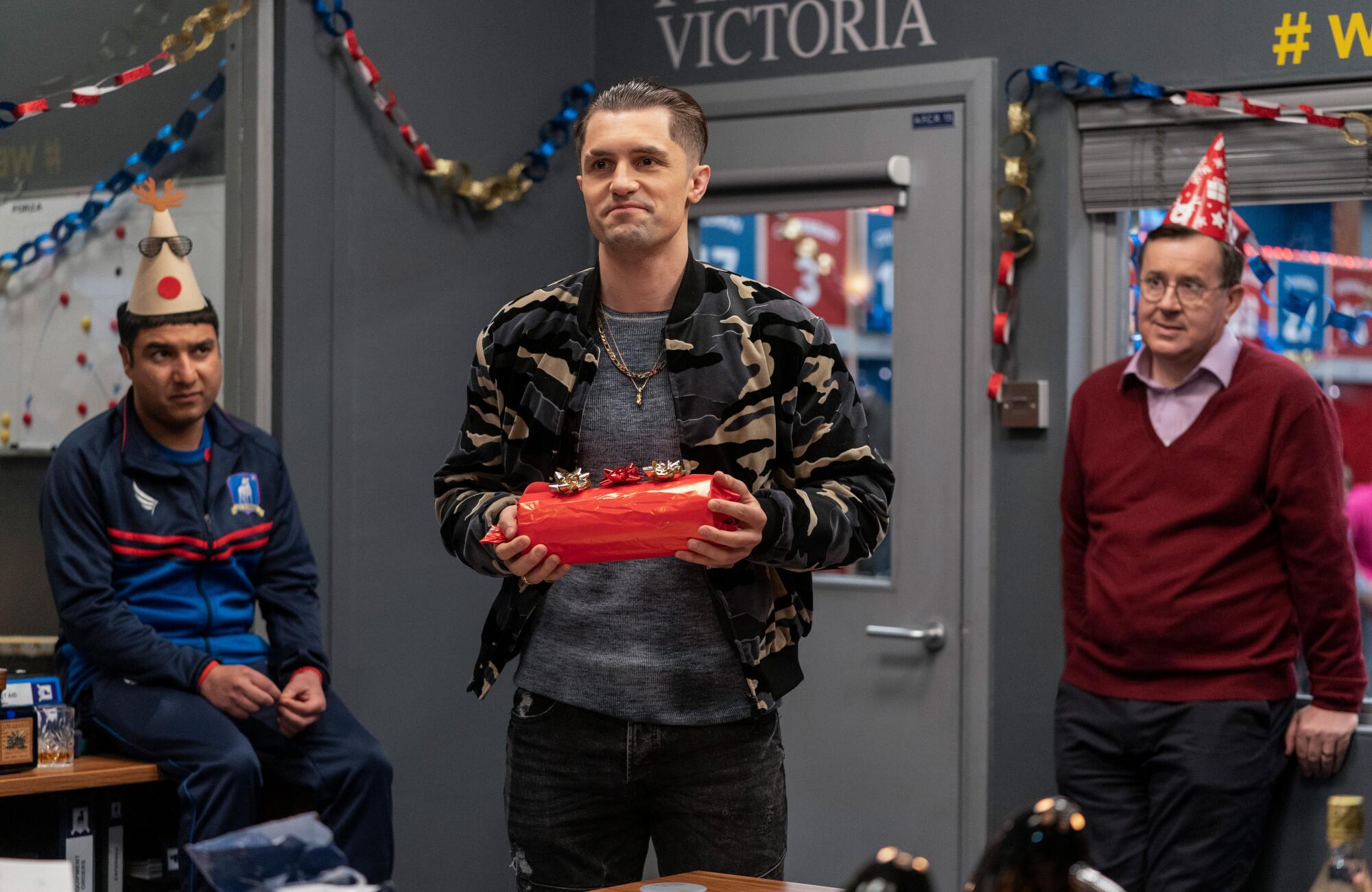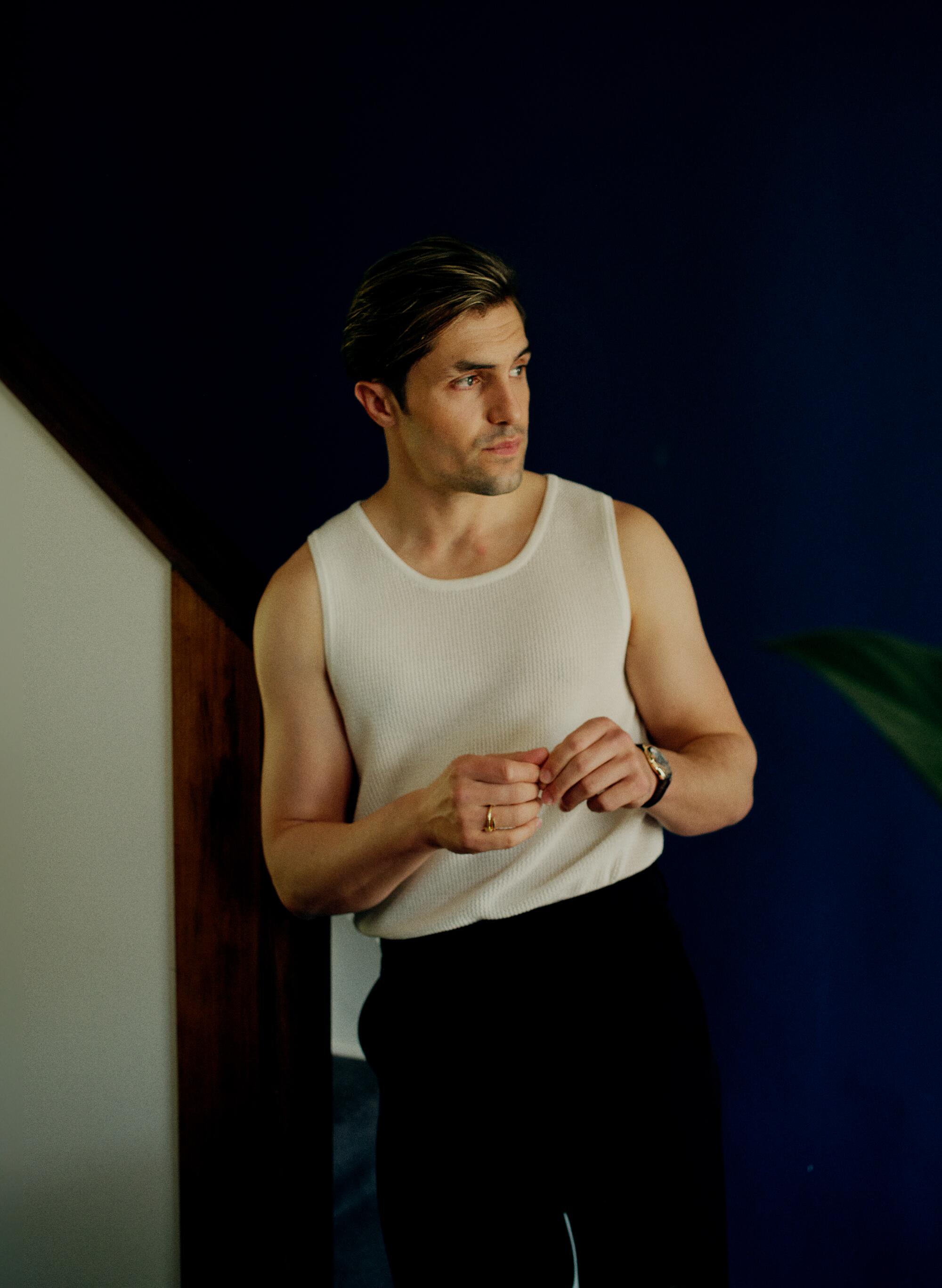- Share via

Phil Dunster is convinced that he’s not funny. Fans of “Ted Lasso,” on which the British actor plays larger-than-life footballer Jamie Tartt, would argue otherwise, but the role isn’t something Dunster previously ever imagined himself taking on.
The actor came from a drama background — he had recurring roles on “Strike Back” and “Humans” and small parts in “Judy” and “The Good Liar” — but his comedy background was limited to two episodes of “Catastrophe.” When he was cast for “Ted Lasso,” only a few weeks before the start of the show’s production, Dunster didn’t know much about Jamie’s eventual arc, which has been equal parts hilarious and movingly sad.
“No one really knows where they’re going in life, so I think that every day [creator Jason Sudeikis] likes to keep you guessing,” Dunster says, speaking from the roof bar at a cinema in central London. “I knew there was an arc that was to come where he hopefully becomes a better person, stepping away from the hairstyles and general behavior. So general vibes, yes, not the specificity. It was all a lovely sort of surprise.”
In Season 1, Jamie was introduced as a loud-mouthed egoist with an affinity for flamboyant clothing, often acting as an antagonist for Brett Goldstein’s often angry, introverted Roy Kent. Dunster, who is nothing like Jamie in real life, discovered the character’s Mancunian accent, which was not originally scripted, as he began to make Jamie his own. The regional dialect, akin to a strong Boston accent in the U.S., stuck.
“You have people like Liam Gallagher and Noel Gallagher, and Jesse Lingard and Marcus Rashford, and it’s not just that they have the accent,” Dunster says. “They’ve got this energy, the persona comes with it. There’s an attitude. And also my agent is from Manchester and she’s just got this, like, sass. I think there was something in Jamie that’s a hardworking person. And he’s got a swagger in the same way that someone like Liam Gallagher does.”


By the second season, Jamie’s cracks began to show, allowing the audience to better understand exactly why he’s put on such an obnoxious veneer. At the season’s end, Jamie confronted his alcoholic father and was embraced by Kent, and it became clear the character is on a journey of self-realization that will continue into Season 3. Exploring that was compelling for Dunster, who is interested in the darker edges of characters. For him, it’s far more relatable than simply presenting a guy who acts horribly for no reason.
“We learn why he’s” such a jerk, Dunster says. “And that’s the thing that you want. That’s the meaty bit that you want to do, even though it’s this comedy. You want to have those bits where you’re like, ‘Yeah, people are d—s. Like, everyone has it within us to be d—s.’ It felt like all of a sudden there was integrity. But he still needs to be a d— because otherwise you might as well just replace him with another character. He’s still gaudy [and] ostentatious. But he can now apologize.”
The series is currently in production on its third season, which Dunster says involves a lot of playing soccer (he’s good enough that the production rarely uses a double for Jamie on the pitch). Despite Jamie’s improvements last year, his ego is, as Dunster says, “ever present.”
“It bites him in the bum at some points,” the actor teases of the upcoming episodes. “But also we saw in Season 2 where he’s like, ‘I could be a p—.’ And the team is like, ‘Well, you could be our p—.’ And he uses his attributes to the team’s benefit. He’s unleashed.”

“Ted Lasso” has skillfully undercut the original perceptions of its characters and allowed its masculine athletes to experience real emotion throughout the story line in a way that has connected with fans. While Dunster doesn’t consider himself to be a particularly comedic actor, he recognizes that true comedy comes from creating these genuine, three-dimensional characters and letting them live in the world Sudeikis and crew have built. It’s not about saying a funny line or wearing an extravagant outfit for the sake of it — it all has to play into who someone like Jamie Tartt is.
“It comes down to finding the nugget of what he actually feels,” Dunster says. “Why it is that he’s feeling that thing and then grounding it. At the end of the day, he’ll be saying something ridiculous, but it’s coming from a place of honesty. He really means it. He thinks he is the best looking person in the room.
“But getting to know the character, getting to know Jamie, also feels like you can stand up for them. You’ve got to be able to justify who they are as people, otherwise there’s no point in playing them. You’re not going to play them with any sort of conviction. The creators have been really good at giving us leeway to express and play and try stuff out.”
More to Read
From the Oscars to the Emmys.
Get the Envelope newsletter for exclusive awards season coverage, behind-the-scenes stories from the Envelope podcast and columnist Glenn Whipp’s must-read analysis.
You may occasionally receive promotional content from the Los Angeles Times.






